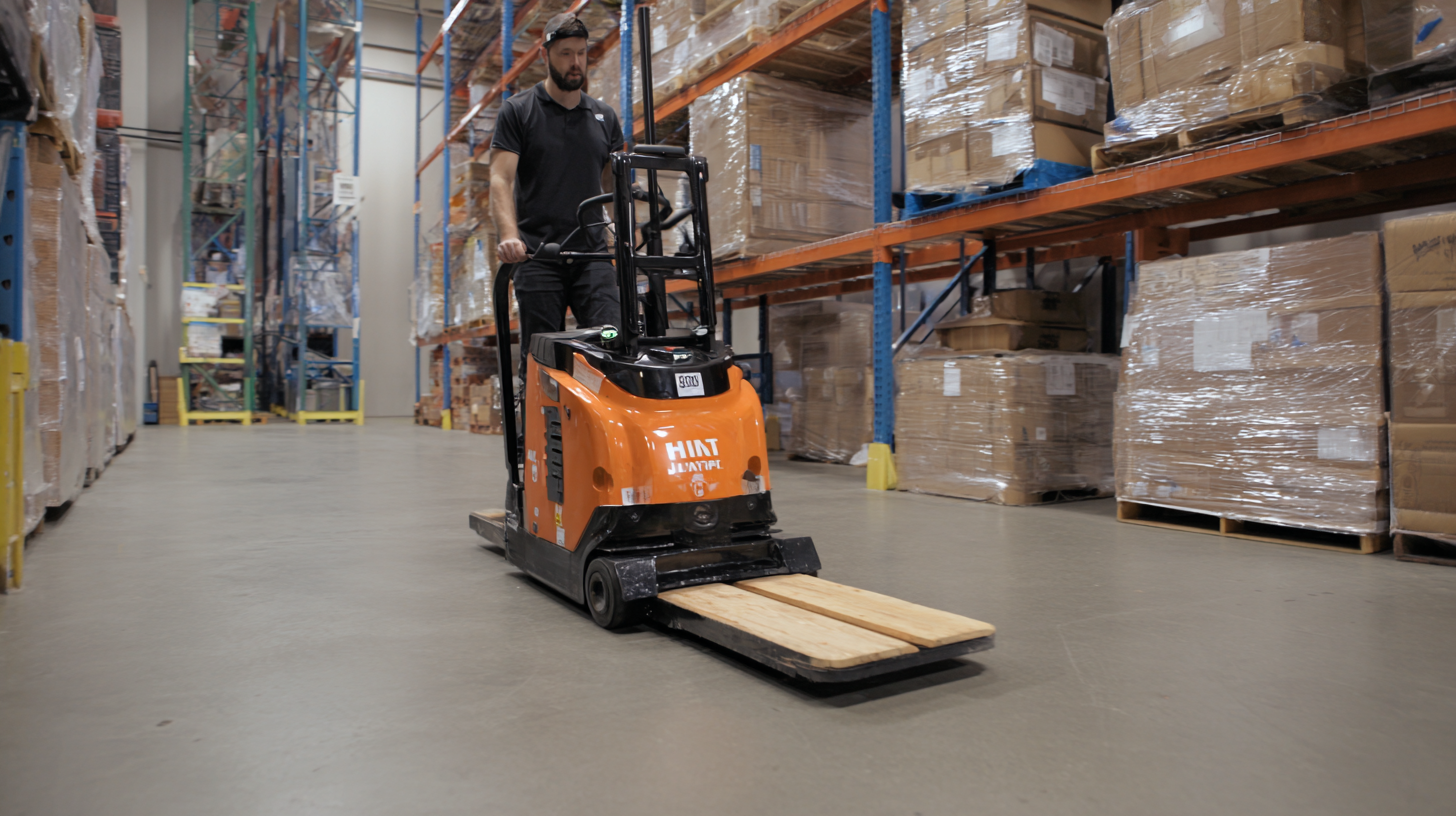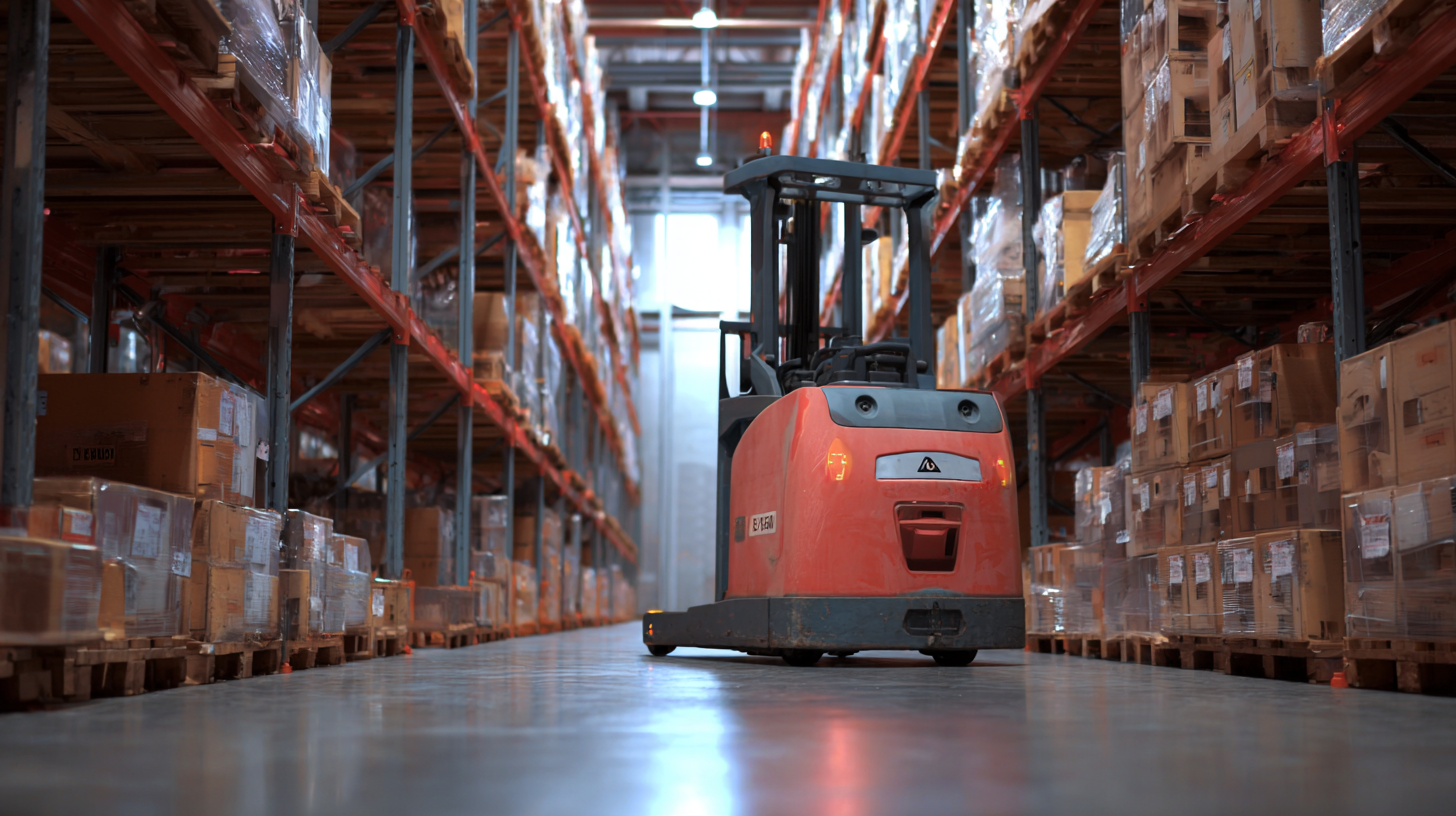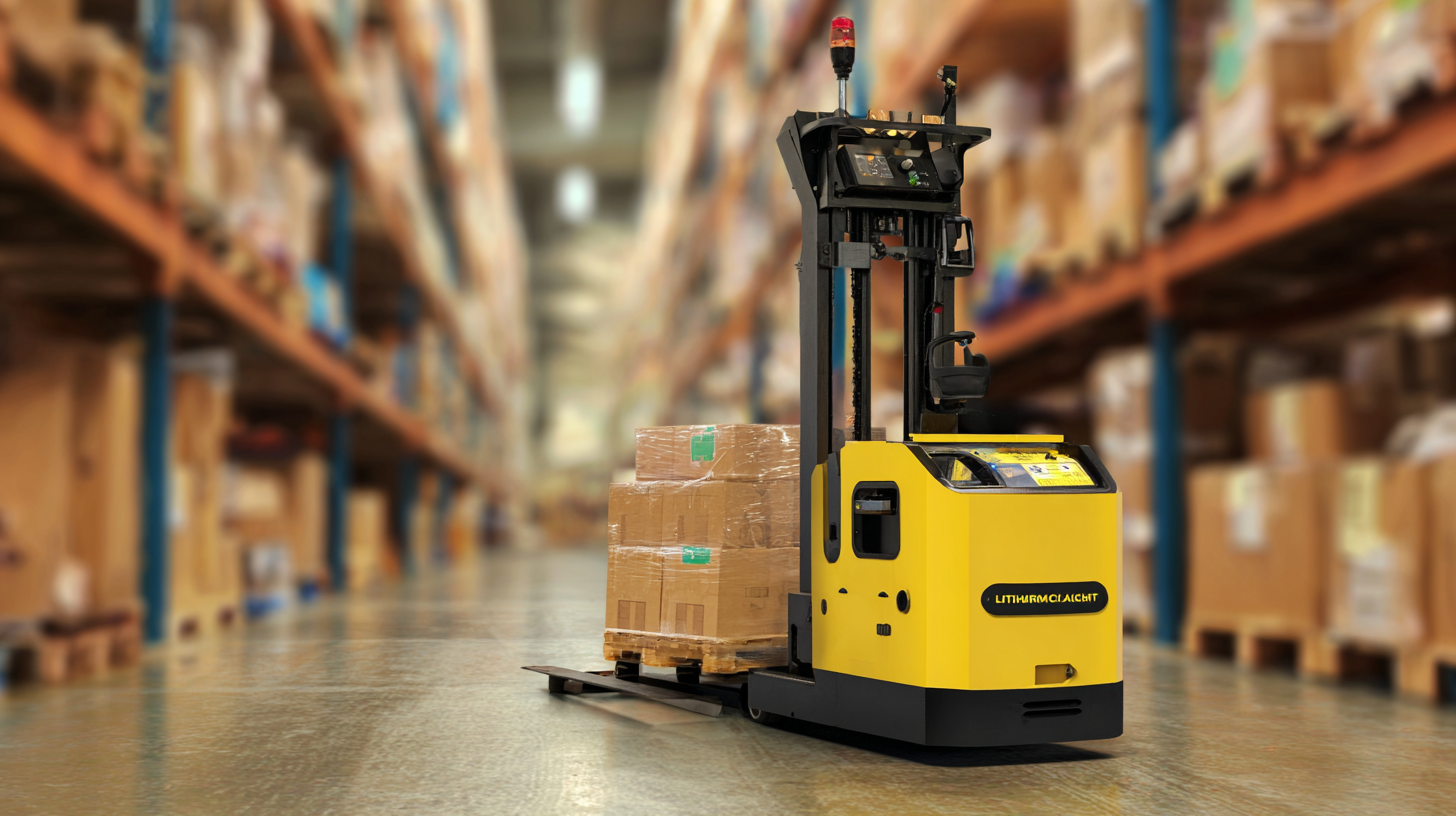Leave Your Message
In the rapidly evolving world of warehousing and logistics, the demand for efficient and reliable equipment is at an all-time high. According to recent industry reports, the global pallet jack market is projected to reach USD 6.7 billion by 2026, driven primarily by the increasing need for automation and support in supply chain operations. Among the various options available, the Lithium Pallet Jack stands out due to its superior performance and eco-friendly attributes. These modern jacks utilize lithium-ion technology, offering enhanced energy efficiency and reduced maintenance costs compared to traditional lead-acid models. As warehouses strive to enhance productivity and sustainability, selecting the right Lithium Pallet Jack becomes crucial for optimizing operations and gaining a competitive edge in an increasingly globalized market.

Lithium pallet jacks are transforming warehouse operations with their advanced technology and numerous benefits. Unlike traditional lead-acid battery models, lithium-ion battery jacks enable faster charging, typically requiring only 2-3 hours, and can perform for a full shift without needing a replacement. According to a report by Market Research Future, the global lithium-ion battery market is expected to reach USD 137 billion by 2027, driven largely by the increasing adoption of electric material handling equipment. This shift not only enhances efficiency but also reduces operational costs in the long run.

Moreover, lithium pallet jacks contribute to sustainability efforts in warehouses. With their longer lifespan—often exceeding 2,000 cycles—lithium batteries reduce the need for frequent replacements that can otherwise lead to environmental waste. A study from the Industrial Truck Association noted that switching to lithium technology could improve energy efficiency by up to 50%, ultimately minimizing the carbon footprint of warehouse operations. These innovations not only streamline workflows but also align with the growing emphasis on eco-friendly practices within the industry, making lithium pallet jacks an attractive choice for modern warehouses.
When selecting the best lithium pallet jack for your warehouse needs, three key considerations come into play: capacity, dimensions, and ergonomics. According to a report from the Material Handling Industry of America (MHIA), the average operational capacity required for a lithium pallet jack in a medium-sized warehouse ranges between 4,500 to 6,000 pounds, depending on the types of goods being handled. Knowing the specific weight requirements of your inventory is vital because overloading can lead to operational inefficiencies and safety hazards.
Dimensions are equally important, as the size of your pallet jack must align with both the layout of your warehouse and the pallets you'll be moving. Data from the Warehousing Education and Research Council (WERC) indicates that handling narrower aisles is increasingly common, emphasizing the importance of selecting a unit that can maneuver effectively in tight spaces. Consider models with a compact design that still maximizes lifting height to improve your warehouse’s overall efficiency.
Finally, ergonomics must not be overlooked. A study conducted by the Occupational Safety and Health Administration (OSHA) revealed that ergonomically designed equipment can reduce the risk of workplace injuries by up to 30%. Features such as cushioned handles, easy-to-operate controls, and responsive lifting mechanisms can significantly enhance the user experience, leading to improved productivity and reduced fatigue. Therefore, investing in a lithium pallet jack that prioritizes ergonomics not only fosters a safer working environment but also contributes to long-term operational success.
When comparing lithium pallet jacks to traditional models, the differences in efficiency and cost-effectiveness become clear. Lithium pallet jacks are powered by advanced lithium-ion batteries, which offer quicker charging times and longer operational lifespans compared to the lead-acid batteries typically found in traditional pallet jacks. This efficiency not only speeds up workflow within a warehouse but also reduces downtime, enhancing overall productivity. Furthermore, lithium batteries maintain their performance even in extreme conditions, making them a reliable choice for varied loading and unloading scenarios.
On the cost side, while the initial investment for lithium pallet jacks may be higher, their overall lifecycle cost proves to be more favorable. With lower maintenance needs and a significantly longer battery life, businesses can enjoy reduced operational expenses over time. Traditional pallet jacks may seem more affordable upfront, but their frequent battery replacements and potential performance issues can lead to higher hidden costs. Investing in lithium pallet jacks, therefore, presents a strategic decision for warehouses looking to optimize their operations and long-term savings.
This chart compares the efficiency and cost-effectiveness of Lithium Pallet Jacks and Traditional Pallet Jacks. Efficiency is measured in terms of load capacity in tons, while cost-effectiveness is represented by the purchase cost in dollars. It shows that Lithium Pallet Jacks tend to offer higher efficiency at a greater initial investment.
As warehouses continue to evolve in response to growing sustainability concerns, lithium technology is paving the way for more efficient and eco-friendly operations. Utilizing lithium pallet jacks significantly reduces the carbon footprint of logistics and warehousing processes. Unlike traditional lead-acid batteries, lithium-ion batteries are not only lighter and longer-lasting, but they also have a reduced environmental impact, which is a key factor for businesses aiming to improve their sustainability profile. This shift towards lithium technology helps companies align their operational practices with global efforts to combat climate change.

Furthermore, lithium technology enhances operational efficiency by minimizing downtime and maintenance. The rapid charging capabilities of lithium pallet jacks mean they can be used for longer periods without the need for frequent battery swaps or lengthy charging sessions. This leads to increased productivity on the warehouse floor and allows for more flexible work schedules. The long lifespan of lithium batteries also translates into lower replacement costs and a more sustainable cycle of use—allowing businesses to invest in better equipment while benefiting the planet.
Adopting lithium technology is not just a trend; it is a strategic decision that forward-thinking warehouses are making to secure a greener future.
When considering the implementation of lithium pallet jacks in various industries, numerous case studies highlight their successful adoption and the tangible benefits they bring.
For instance, the expansion of lithium-ion battery technology has become pivotal in creating efficient and sustainable material handling solutions.
Recent market reports indicate that the demand for electric vehicle batteries is booming, which directly influences related sectors, including warehouse logistics. The shift toward electric solutions is further underscored by a systematic review revealing that transitioning to lithium-ion technology can effectively reduce carbon footprints within logistics operations.
Moreover, companies committed to sustainability have increasingly turned to lithium pallet jacks as they not only enhance operational efficiency but also contribute to broader decarbonization goals. A compelling case study in the manufacturing sector showed that integrating these battery-powered solutions led to a 30% reduction in energy consumption compared to traditional equipment. Furthermore, as lithium-ion battery recycling practices become more sophisticated, businesses are leveraging circular business models to minimize waste and optimize resource use, showcasing the growing importance of sustainability in warehouse operations.
As these trends continue to evolve, industries can expect significant advancements in both performance and environmental impact.
